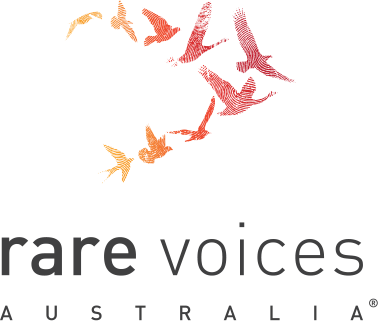Information on Genetic Services
Approximately 80 per cent of rare diseases result from a disease-causing change in an individual’s DNA.1 These disease-causing changes may occur spontaneously (de novo) or may be inherited from one, or both, parents. Individuals can also be carriers of a genetic change. Being a carrier means they do not have a rare disease, but they can pass on a rare disease to their children. Some rare disease-causing genetic changes can be detected through genetic testing. These types of tests are accessed through genetic services in various locations across Australia.
Genetic services teams include clinical geneticists and genetic counsellors. Clinical geneticists are medical doctors with specialist training in genetics and genetic conditions who can diagnose and discuss care plans for genetic disorders.2 You will likely see a clinical geneticist if you are searching for a diagnosis to explain your symptoms, features and/or medical history. Genetic counsellors are allied health professionals with training in genetics and counselling.3 Genetic counsellors can support people to understand genetic testing and inheritance patterns (how a condition is passed down from one or both parents, and/or how it may be passed on to the next generation) and to make decisions about their genetic health. They can also help families adjust to living with a genetic condition, provide advice for other relatives and plan for the future.4
If you are experiencing difficulty getting or understanding your diagnosis or accessing support, please talk to your doctor or contact the RARE Helpline.
This page contains information on genetic services in Australia. The information on this page is intended as a guide only. If you are aware of any additional information that may benefit stakeholders with an interest in this page or another page on the RARE Portal, or if you notice any broken links or inaccurate information, please let us know via the Contribute page.
Quick Page Search:
Accessing genetic services
Finding a genetic service
The importance of genetic counselling
Useful resources
References
Acknowledgements
Accessing genetic services
A referral from a doctor (GP or specialist) is usually required to access genetic services. Few clinics accept self-referrals. Referrals to genetic services in public hospitals are triaged and, if accepted, added to a waitlist. Wait times for access to genetic services may vary. Private genetic services may have shorter wait times, but there may be additional costs.
Genetic services differ across Australia. Please contact your local genetic service directly for more information about:
- whether a referral is needed
- the likelihood of referrals being accepted
- approximate waiting periods
- out of pocket expenses (not all genetic services are covered by Medicare)
After receiving your referral, the genetic service will send you, or your doctor, a letter to let you know if they are able to support your care. If you have not received a letter after some time, you should call the genetic service to confirm if they received your referral.
Finding a genetic service
Human Genetics Society of Australasia (HGSA): Clinical Genetic Services lists available public and private clinical genetic services by Australian state and territory, as well as national services accepting referrals from across Australia.
NSW Health’s Centre for Genetics Education: Genetic Service Finder lists genetic and related services across Australia, searchable by location and type of service.
The importance of genetic counselling
Genetic testing is voluntary and should be done with informed consent. There are many things to consider when accessing genetic testing. It is important to have genetic counselling with a certified genetic counsellor or clinical geneticist before deciding to undergo genetic testing. Genetic counselling can help you understand:
- the reason and need for genetic testing
- the type of genetic testing and the information that it can provide
- the benefits of knowing the genetic basis of your condition, for you and your family
- any risks associated with genetic testing, including ethical and privacy issues
- costs involved – not all tests are covered by Medicare
Human Genetics Society of Australasia (HGSA): Registered Genetic Counsellor provides a searchable list of registered genetic counsellors across Australia.
Useful resources
- GeneEQUAL: Making a genetic appointment – an easy read booklet for people with intellectual disability
- Human Genetics Society of Australasia (HGSA): Information about different roles in genetic health service delivery
- Better Health Channel: Information about genetic counsellors
- Raisingchildren.net.au: Genetic Counselling Guide for Parents
- healthdirect: Genetic testing
- Australasian Association of Clinical Geneticists: Resources for people and families who have been offered genomic testing
- NSW Health (Centre for Genetics Education): Genetic and genomic testing considerations
- National Health and Medical Research Council (NHMRC): Direct-to-Consumer genetic testing – statement
References
- Australian Government. Department of Health. National Strategic Action Plan for Rare Diseases. Canberra; 2020. 63 p. https://www.health.gov.au/sites/default/files/documents/2020/03/national-strategic-action-plan-for-rare-diseases.pdf
- NSW Health. A career as a clinical geneticist. Accessed 19 April 2024. https://www.health.nsw.gov.au/careers/students/Factsheets/clinical-geneticist.pdf
- NSW Health. A career as a genetic counsellor. Accessed 19 April 2024. https://www.health.nsw.gov.au/careers/students/Factsheets/genetic-counsellor.pdf
- Pregnancy, Birth and Baby. Genetic Counselling. Accessed 3 April 2024. https://www.pregnancybirthbaby.org.au/genetic-counselling
Acknowledgements
Thank you to Lauren Hunt (Chief Operating Officer, Human Genetics Society of Australasia) and Dr. (Elizabeth) Emma Palmer (Clinical Geneticist, Sydney Children’s Hospitals Network) for contributing information for this page.
